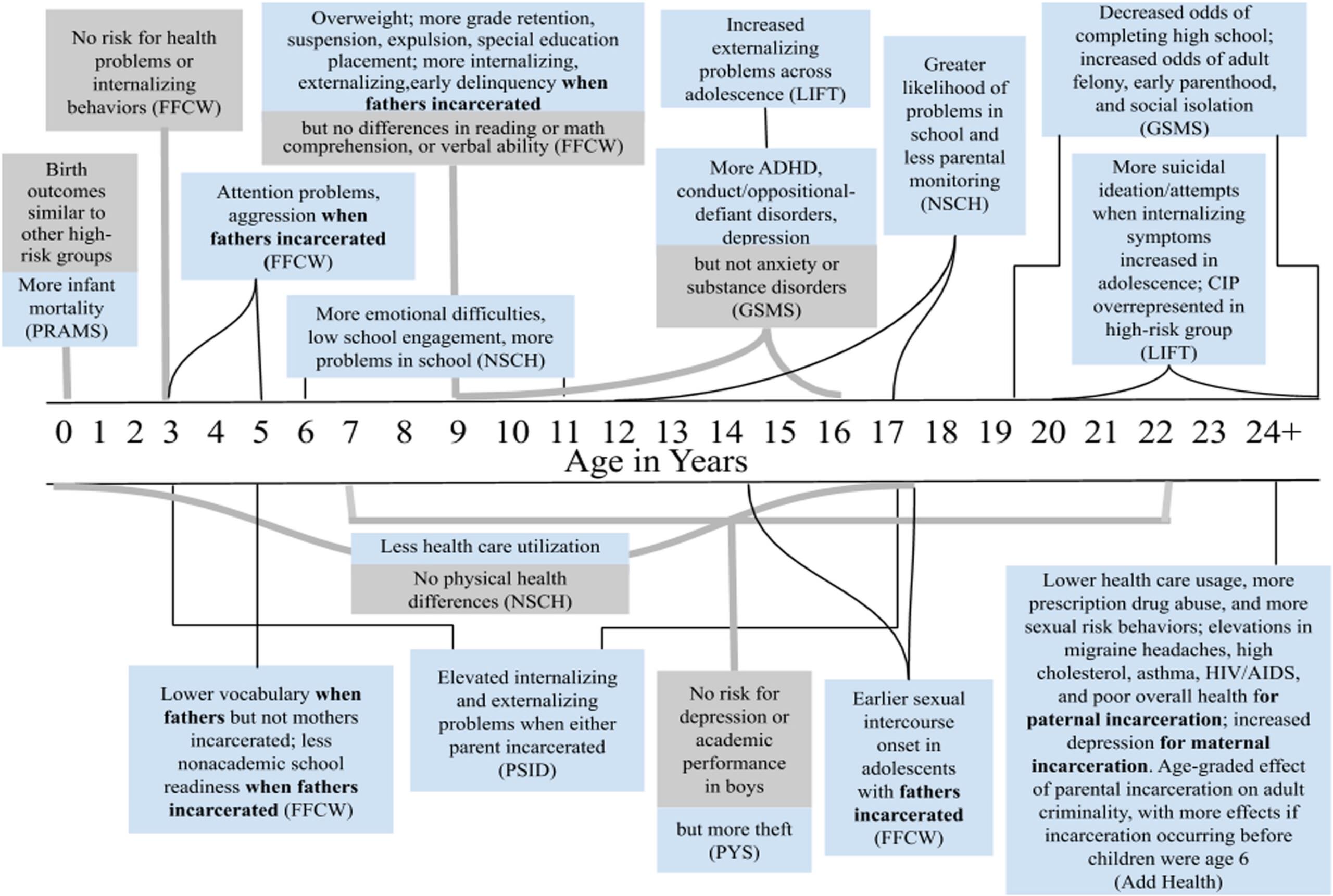Does parental incarceration affect children differently depending on the child’s age at the time of the experience?
Please sign in or create your account in order to access this material.
Although more research is needed on this topic, some studies have found such effects.
Age-graded effects are present in some population-based longitudinal studies of children with incarcerated parents:
- When children experience parental incarceration when they are very young, they are more likely to experience developmental, health, and behavioral challenges than children who experience parental incarceration when they are older
- This could also result from generally high rates of recidivism in the US; when children experience parental incarceration early, they may also experience it multiple times during development
- Studies on parental incarceration that include adolescents and young adults often document more challenges than studies with infants, toddlers, or preschoolers
- This could be a measurement issue; often outcomes of interests to criminologists or sociologists involve constructs that are not present in infants or very young children (e.g., risk taking behaviors, substance use, contact with the justice system)
- The figure presents a developmentally-organized timeline of findings from population-based longitudinal studies focusing on children with incarcerated parents at different ages
- The blue boxes with black lines indicate that parental incarceration was related to the outcome even when covariates were included in the model
- The gray boxes indicate null findings for parental incarceration
- CIP = children with incarcerated parents; FFCW = the Fragile Families and Child Wellbeing Study; GSMS = Great Smoky Mountains Study; Add Health = National Longitudinal Study of Adolescent to Adult Health; NSCH = National Survey of Children’s Health; PSID = Panel Study of Income Dynamics; LIFT = Linking the Interests of Families and Teachers randomized controlled trial; PYS = the Pittsburgh Youth Study; PRAMS = Pregnancy Risk Assessment Monitoring System.

Course Syllabus
Not Enrolled
